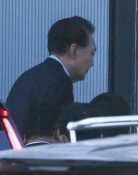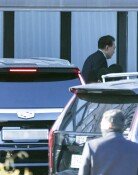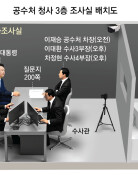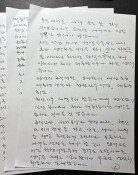CIO faces criticism over failed arrest of the president
CIO faces criticism over failed arrest of the president
Posted January. 07, 2025 07:55,
Updated January. 07, 2025 07:55
The Corruption Investigation Office for High-ranking Officials (CIO) attempted to delegate the execution of an arrest warrant for President Yoon Suk Yeol to the police but withdrew the request following police refusal. The CIO had sent an official document stating, "We are delegating the execution of the arrest warrant," but the police strongly objected, citing "a possibility of illegality." Consequently, the CIO backed down and failed to execute the arrest within the warrant's six-day validity. This unilateral move further fueled confusion among investigative agencies. The CIO has since applied to the court for an extension of the arrest period.
At the outset of the investigation, when the prosecution, police, and the Corruption Investigation Office for High-ranking Officials (CIO) were competing behind the scenes to investigate President Yoon, the CIO was the most proactive in exercising its right to demand case transfers from other agencies. If the CIO had acquired the right to investigate President Yoon through its legal authority and compulsory powers, it should have demonstrated the appropriate capacity and responsibility. However, on Friday, the CIO attempted to execute an arrest warrant but faced opposition from the Presidential Security Service, ultimately withdrawing after 5.5 hours. Following this, it took no significant action for two days before abruptly sending an official letter to the police near the end of the warrant period, stating, "We are entrusting you with the arrest," thereby sparking controversy.
However, the CIO stated it would retain its investigative authority over President Yoon Suk Yeol. This means the police would handle the arrest, which has so far seemed elusive, while the CIO would resume its investigation once he is in custody. This approach has been criticized as self-centered and expedient. Despite widespread opinions that the agency lacks the legal authority to direct the police to execute arrest warrants, it failed to consult with the police in advance on this matter. Discontent is growing within the police, with remarks such as, "Our patience with the CIO's approach is reaching its limit."
The fundamental reason for this chaotic situation lies in President Yoon's refusal to comply with the court-issued arrest warrant and the Secret Service's use of physical force to obstruct it. While it is true that the CIO, with only about 50 prosecutors and investigators, faces significant limitations against the Secret Service's hundreds of personnel and resources, backing down is not an option. Having assumed the authority to investigate President Yoon, the CIO must maintain a firm stance, adhere to its principles, and deliver meaningful results.







